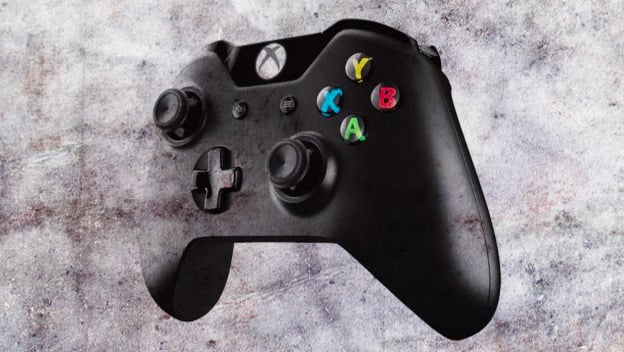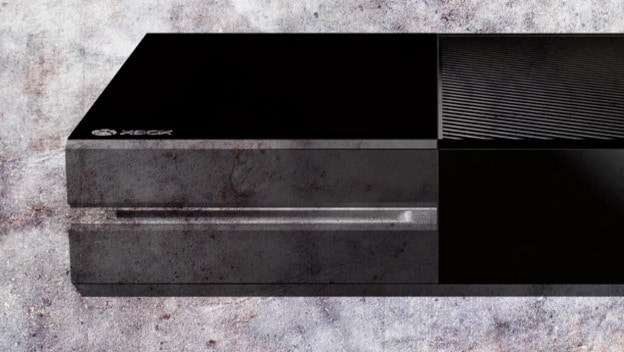Microsoft provoked a firestorm of opinion and discussion last night when it released several Xbox One policy explanations on the Xbox Wire . While we all have our opinions about the new information we’ve just learned, let’s step back a moment and take a look at the facts. What, exactly, has Microsoft just stated about the Xbox One, and what does it mean for consumers?
Let’s start with the bare-bones facts, and follow up with a detailed explanation of how used games, online connectivity, and privacy will work on the Xbox One.
The Bare-Bones Facts
- Xbox One game discs will have licenses associated with them. Used games will not work without the transfer of that license via Microsoft’s online gifting system or a retailer participating in Microsoft’s used game system.
- Individual publishers are able to decide whether gamers are allowed to buy or sell their games used and whether to participate in Microsoft’s gifting system. If a game is not published by Microsoft, there is no guarantee that it can be freely gifted or resold.
- An Xbox One must connect to the Internet once a day in order to play games.
- Family members can access their Xbox One’s game library from afar, but only one person at a time can do so.
- Kinect can be turned on and off freely and is not required to play games (except those made specifically for Kinect) or watch shows.
- All of this comes with the standard corporate disclaimer that it can be changed by Microsoft at any time.
Used Games
Microsoft has just made its stance on used games clearer, and it’s one that is consistent with the company’s general philosophy on software. Microsoft sees a game or software title not as a physical object that people own, but as code that customers license for use on their hardware. Although Xbox One games will be sold on disc, the actual ownership of a game is tied to a player’s account once that game is installed. This allows gamers to play their Xbox One games without putting the disc into the machine, but it also affects how reselling used games is handled.
Reading between the lines in Microsoft’s policy statement, an Xbox One game disc will be useless on its own. There will apparently be a system that ties a disc to a license, which is granted to the first person who installs that game on a particular Xbox One. This means that gamers won’t want to buy used Xbox One discs at garage sales or from a private person selling on eBay, Craigslist, etc. The disc may have game data on it, but the buyer won’t be able to play the game, because it will still be tied to the account of its original purchaser. This is exactly how most games have worked on the PC for years.
In order to allow gamers to trade or sell used Xbox One games, Microsoft will be implementing a system that will allow them to do so at “participating retailers,” who will apparently have the power to deactivate a license from one Xbox Live account so that it can be reused on the new owner’s account. We don’t know how this system will work yet and what kind of infrastructure a store will need in order to become a participant in this program.
What we do know is that Microsoft will not be taking a cut of used games sales, and won’t charge players anything for trading in Microsoft-published titles. Microsoft is leaving the used game decision up to individual publishers, who can decide for themselves whether they want to allow the sale of used games or charge a fee for a used game trade. This means that EA, Activision, or any other publisher can decide that players are not allowed to resell their games, or that players who buy a used game that they’ve published will need to pay an extra fee.
Microsoft is also allowing players to give a game’s license to somebody who has been on their friends list for over thirty days. This will transfer ownership to the friend, and the transfer can only be done once per game license. Again, publishers will make the decision whether to allow this kind of friend gifting. Gamers will be able to give a (Microsoft-published) Halo game to a friend for free, but we won’t know if they can do the same with an EA Sports game until EA decides whether it’s participating in this option.
Connectivity and The Cloud
There has been a lot of speculation that the Xbox One would require an always-on internet connection. This isn’t strictly true, but Xbox One owners will need an Internet connection to play games on the device. An Xbox One will need to connect to the Internet at least once every twenty-four hours. If it cannot connect at least once a day, it will not allow its owner to play games until it is able to connect again. As long as an Xbox One connects once a day, any games that have been installed and licensed on a particular machine can be played regardless of the account that is logged in.
Because Microsoft is employing online licenses and Cloud storage for games, players will be able to log into a friend’s Xbox One and access the games that are tied to their account. This allows players to show off their games to friends without having to cart around a disc collection. Games being played in this way require the Xbox One to connect to the Internet once per hour or they will cease to work.
Up to ten family members can be given access to a single Xbox One’s library of games. Microsoft’s wording isn’t crystal-clear, but it appears that at any given time, one person can be playing on their Xbox One, while a single other person can access that machine’s library from afar. In other words, an Xbox One always allows access to its game library, but only one person at a time can access that library while logged in on a distant console. This system implies that every Xbox One account will have a “home” Xbox One with which it is associated.

Kinect and Privacy
Every Xbox One comes with a Kinect system, and one of the major questions surrounding the console has been whether the Kinect’s camera is required to be on at all times. Microsoft’s answer on this topic is quite simple. Xbox One owners have full control over whether the Kinect is on or off. Games and applications that require the Kinect will not work when it is off, but otherwise, the Kinect is not required to be on while playing games or engaging in other forms of entertainment. Microsoft has promised that controllers, remote controls, and connected smart devices will be able to control the Xbox One regardless of whether the Kinect is on or off.
Finally, Microsoft has stated that while some games and applications can collect data from the Kinect camera, that data will not leave a customer’s Xbox One without that person’s explicit permission.
